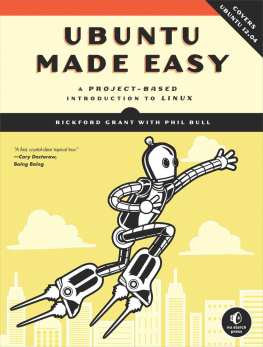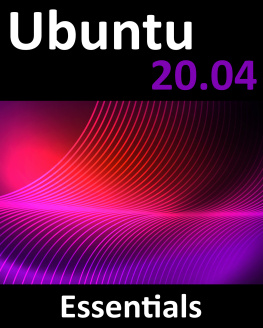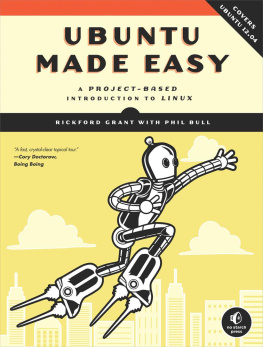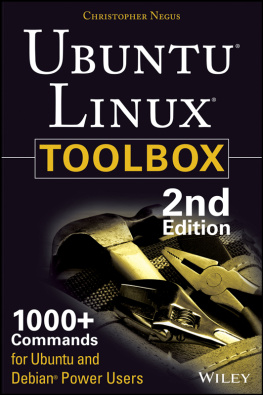Rickford Grant - Ubuntu for Non-Geeks: A Pain-Free, Get-Things-Done Guide
Here you can read online Rickford Grant - Ubuntu for Non-Geeks: A Pain-Free, Get-Things-Done Guide full text of the book (entire story) in english for free. Download pdf and epub, get meaning, cover and reviews about this ebook. year: 2010, publisher: No Starch Press, genre: Romance novel. Description of the work, (preface) as well as reviews are available. Best literature library LitArk.com created for fans of good reading and offers a wide selection of genres:
Romance novel
Science fiction
Adventure
Detective
Science
History
Home and family
Prose
Art
Politics
Computer
Non-fiction
Religion
Business
Children
Humor
Choose a favorite category and find really read worthwhile books. Enjoy immersion in the world of imagination, feel the emotions of the characters or learn something new for yourself, make an fascinating discovery.

- Book:Ubuntu for Non-Geeks: A Pain-Free, Get-Things-Done Guide
- Author:
- Publisher:No Starch Press
- Genre:
- Year:2010
- Rating:4 / 5
- Favourites:Add to favourites
- Your mark:
Ubuntu for Non-Geeks: A Pain-Free, Get-Things-Done Guide: summary, description and annotation
We offer to read an annotation, description, summary or preface (depends on what the author of the book "Ubuntu for Non-Geeks: A Pain-Free, Get-Things-Done Guide" wrote himself). If you haven't found the necessary information about the book — write in the comments, we will try to find it.
The Ubuntu Linux distribution makes Linux easy, and Ubuntu for Non-Geeks makes it even easier. Full of tips, tricks, and helpful pointers, this pain-free guide is perfect for those interested inbut nervous aboutswitching to the Linux operating system.
This revised and expanded fourth edition is packed with new material that covers all the latest features of Ubuntu 10.04, Lucid Lynx. It includes five new chapters that take you step-by-step through common tasks like installing and playing games, accessing your favorite social networks, troubleshooting common hardware and software problems, connecting with the Ubuntu community, interacting with your Windows installation, and more.
By following along with the books straightforward explanations and step-by-step projects, youll learn how to:
- Install Ubuntu and keep it updated
- Set up printers, scanners, USB flash drives, and other hardware
- Install and play free games like Frets on Fire, Frozen Bubble, and Warzone 2100
- Watch DVDs, listen to music, and sync your iPod, iPhone, or other mobile devices
- Edit and share digital photos and videos
- Create documents, spreadsheets, and presentations
- Customize the look and feel of your system
- Work with the command line (or avoid it altogether!)
If youre looking for a pain-free way to learn Linux, Ubuntu for Non-Geeks is just what you need to get started.
Rickford Grant: author's other books
Who wrote Ubuntu for Non-Geeks: A Pain-Free, Get-Things-Done Guide? Find out the surname, the name of the author of the book and a list of all author's works by series.





